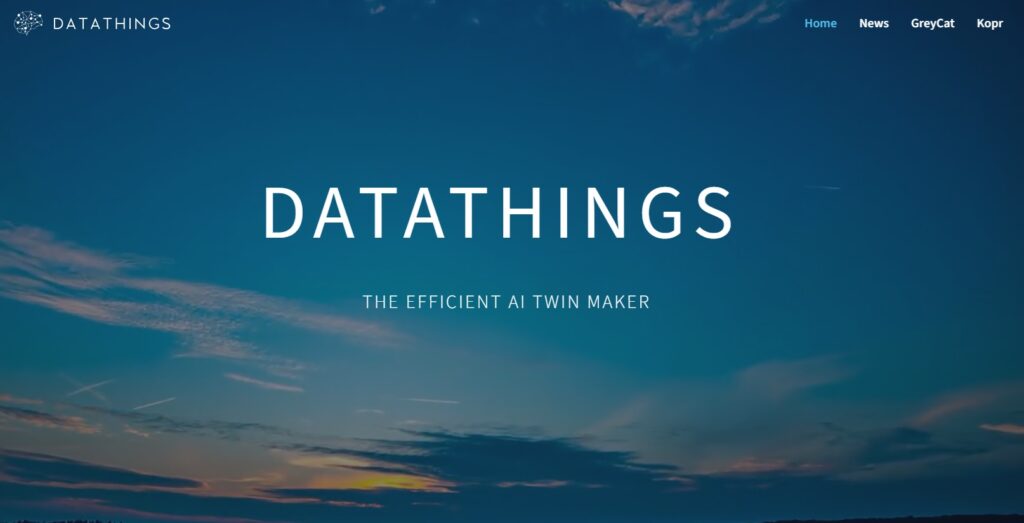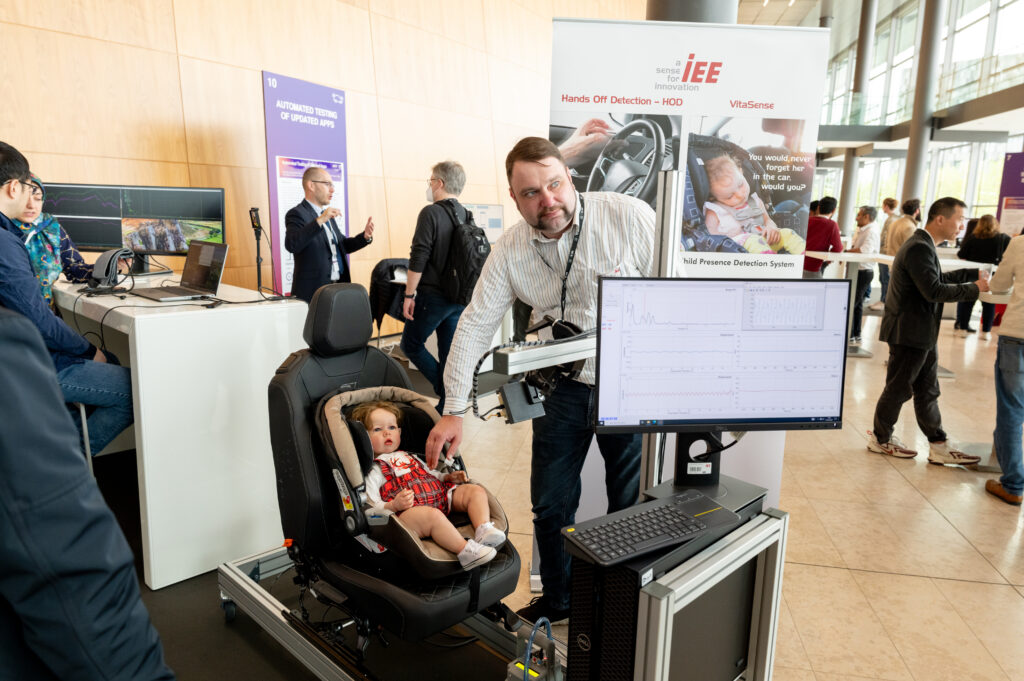BACK TO RESEARCH WITH IMPACT: FNR HIGHLIGHTS
As the FNR marks 25 years since its creation, we highlight 25 examples of FNR-supported research with impact.
Since arriving in Luxembourg in 2009, Yves Le Traon has led various projects on software engineering, with a particular focus on testing, security, and AI systems. As of 2024, Prof Le Traon is also the Director of the University of Luxembourg’s Interdisciplinary Centre for Security, Reliability and Trust (SnT).
The keyword to Le Traon’s research focus is “software”.
“My research, broadly speaking, is about software engineering, software testing, security and AI systems,” he explains.
“No other discipline in history constantly invents solutions for rising complexity – software engineering has done a great job! The evolution is rapid, just to give an example: in 2015,Google used 2 billion lines of code.In 2025, it’s 5 to 10 billion lines of code – 5 times more in the space of only ten years.”
Software engineering integrates everything that guarantees the correctness and security of complex software systems, helping companies build systems in a competitive manner. Complex software systems are used in aviation, nuclear power station safety and cybersecurity, to name a few examples. These areas have in common that it is essential – if something does not work as it should, the consequences could be extremely serious. Hence, testing and security is key, for example making AI fraud detection systems immune to attacks.

“Just to give you an idea of the complexity, imagine you have to consider systems which contain millions of lines of code. Finding a bug or a vulnerability is like looking for a needle in haystack or trying to find a minotaur in a maze with billions of corridors. ”Prof Yves Le Traon Director, Interdisciplinary Centre for Security, Reliability and Trust (SnT)

Securing Android operating systems
Le Traon points out that the University of Luxembourg ranks among the global leaders for research centres, based on its impact in software engineering.
“Since the very creation of SnT, I contributed to the development of this research centre, which in my opinion is unique in, in Europe and in the world. My research work is part of a wider dynamic: SnT is ‘research with impact’ and gathers around 70 partners,” Le Traon explains.
Le Traon highlights research conducted together with students and two colleagues (Jacques Klein and Tegawendé Bissyandé) in Luxembourg in collaboration with other research groups in the world, which focused on securing the Android operating system.
“We did very interesting research relating to code, static analysis, dynamic analysis, malware detections, which led to award winning papers that are among the most influential in the area. This research also played a key role in SnT going on to host the Google Centre of Excellence that was launched in March 2025 on the centre’s premises. ”Prof Yves Le Traon Director, Interdisciplinary Centre for Security, Reliability and Trust (SnT)
DataThings
Since coming to Luxembourg to join SnT as a professor in 2009, in addition to his academic work Le Traon has also co-founded DataThings, a successful spin-off company of the University of Luxembourg. Currently counting around 15 employees, the spin-off provides “real-time AI solutions for developing new services or even to apply to complex systems such as a smart grid”, Le Traon explains.
datathings.com

Radar based solutions for car safety
Le Traon underlines that there are countless success stories coming from various research groups at SnT and names as another example research led by Assistant Professor Bhavani Shankar which led to the deployment of radar based solutions to alert people if they forgot a child (or pet) in a car, which can be fatal. This technology is being adopted by car manufacturers.
Looking to the future
It’s vital for Le Traon that Luxembourg remains at the forefront of research and technology in the future.
“This is especially true when we talk about artificial intelligence and quantum, I think SnT in general, along with my research, do a very important job training highly skilled people through research.”
“After all, people who already master the technology and can feed the ecosystem also go worldwide and create an international network of researchers in the world.”

“I think we are now really at a key moment for Luxembourg as a country – AI is propagating everywhere and quantum should become mature in the coming years. This means that if we want Luxembourg to remain sovereign and thus to be economically viable, we need to master these technologies in addition to the more classical applications. ”Prof Yves Le Traon Director, Interdisciplinary Centre for Security, Reliability and Trust (SnT)
Additional highlights from Prof Yves Le Traon
- 1997: “My 300 lines of Pascal code were still in use 10 years after my defence by ArianeEspace.”
- 2003: “Model-driven engineering (with colleagues Jean-Marc Jézéquel, Philippe Dhaussy), pushing for the adoption of Model-driven engineering in large companies, such as Airbus and Thales.”
- 2000-now: “Contributing to Mutation testing: I learned a few days ago that Meta is using this method of errors’ injections to ensure the system detects frauds.”
- 2017 : “Successful – award winning – spin-off of my research group: Datathings. The company (recently awarded by Fedil AI Excellence Award) now counts 15 people.”
- 2009-2016: “Android system security (Jacques Klein, Bissyandé Tegawendé) – code static analysis, detection of malware and security leaks.10 year most influential papers in top venues.”
Yves Le Traon on FNR support
“I am very grateful to FNR to have continuously supported my research. For example, thanks to the funding for the project STELLAR, it was possible to make a strategic move for my research group towards not only using AI but contributing to the AI field.
FNR funding has also enabled collaborations with industry, for example with Cebi on the project “Industry 4.0” and with Creos on the project “SmartGrid”.
Training the next generation
“Since the beginning of my career I successfully supervised more than 40 PhD students. “It’s a blessing to guide and support talented researchers, such as Tegawendé Bissyandé, Maxime Cordy, Jacques Klein, Sylvain Kubler and Mike Papadakis.”
Prof Yves Le Traon’s FNR-funded projects (main applicant)
| Project title | Year | FNR funding instrument |
| CORE | 2021 | Lightweight collaborative nanoGrid controllers for global Greenhouse Gas Emission Reduction |
| BRIDGES | 2021 | Robust Predictive Maintenance for Industry 4.0 |
| INITIATE | 2020 | Automation and personalisation in complex financial systems – a concept for a national Centre of Excellence in Research in Financial Technologies |
| CoVid19 Funding Instrument | 2020 | Pandemic Simulation and Forecasting for an Empowered Policy-Making: Convergence of Machine Learning and Epidemiological Models |
| BRIDGES | 2019 | Seamless Trace ABILITY for I4.0 |
| CORE | 2018 | Testing self-learning systems |
| BRIDGES | 2018 | Software testing in a fast, clever and effective way |
| INTER Mobility | 2016 | Serval@Berkeley |
| RESCOM | 2013 | ICST 2013 |
| CORE | 2012 | Testing Orders of Magnitude |
| CORE | 2011 | Conviviality and Privacy in Ambient Intelligence Systems |
Related Funding Instruments
Related highlights
25 examples of research with impact: The science of fairness – inside inequality
As the FNR marks 25 years since its creation, we highlight 25 examples of FNR-supported research with impact. Since arriving…
Read more
25 examples of research with impact: A solid foundation for artificial intelligence
As the FNR marks 25 years since its creation, we highlight 25 examples of FNR-supported research with impact. Artificial intelligence…
Read more
25 examples of research with impact: Smart materials for a sustainable future
As the FNR marks 25 years since its creation, we highlight 25 examples of FNR-supported research with impact. Since arriving…
Read more
25 examples of research with impact: Advancing AI and Computer Vision: From space tech to better healthcare
As the FNR marks 25 years since its creation, we highlight 25 examples of FNR-supported research with impact. Since arriving…
Read more
25 examples of research with impact: Understanding the evolution of the workplace in the digital era
As the FNR marks 25 years since its creation, we highlight 25 examples of FNR-supported research with impact. Active in…
Read more
25 examples of research with impact: Breaking barriers in cancer research & treatment
As the FNR marks 25 years since its creation, we highlight 25 examples of FNR-supported research with impact. In Luxembourg…
Read more